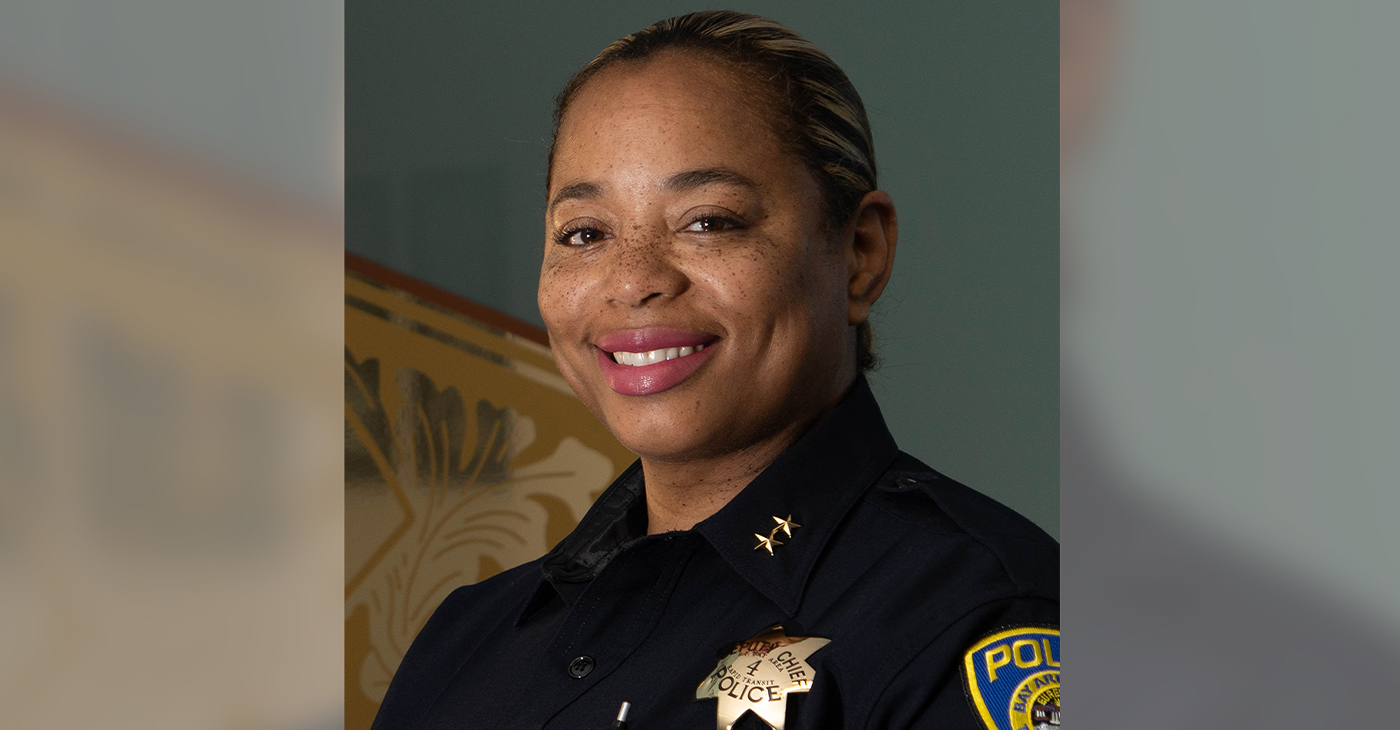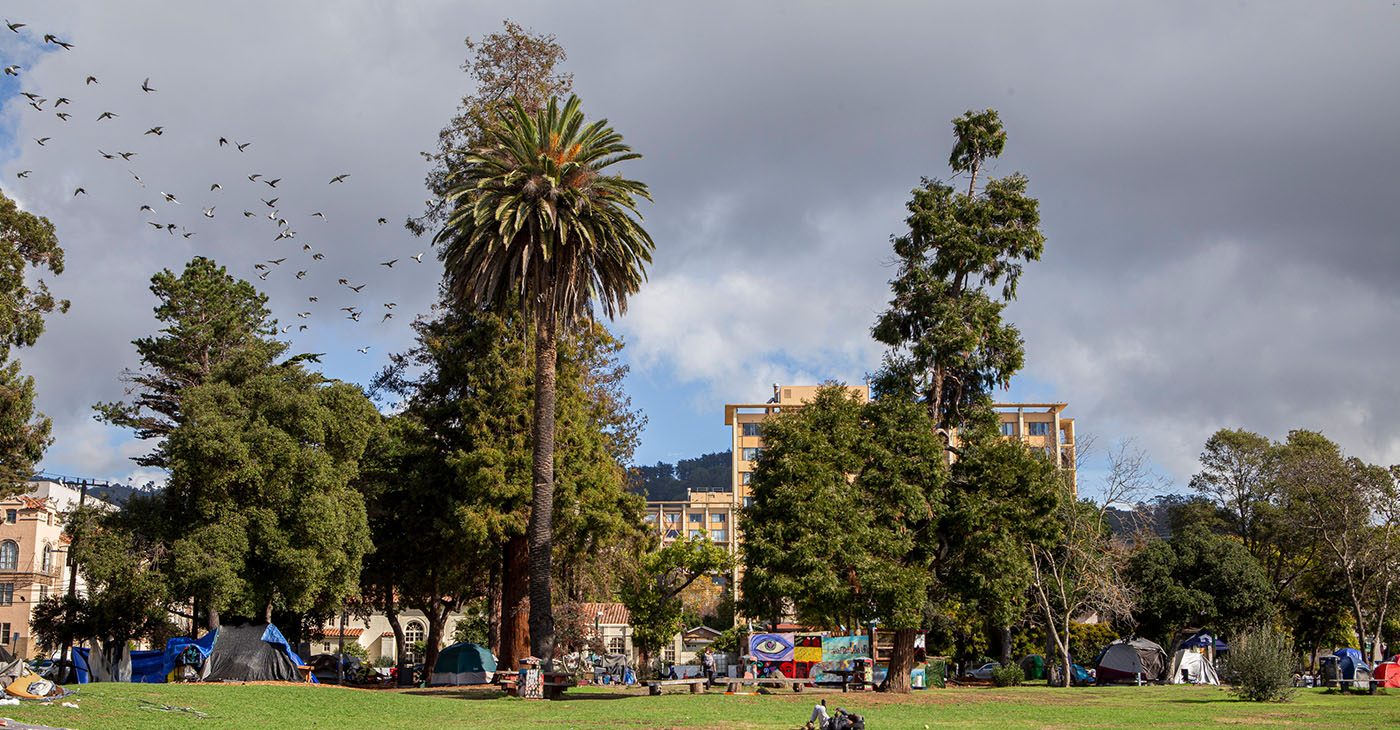BayCityNews
Newsom Rescinds COVID State of Emergency, Signaling Shift Away From Emergency Response
Gov. Gavin Newsom formally rescinded California’s COVID-19 state of emergency Tuesday, shifting the state’s strategy around the virus from response to preventing and assuaging future surges. Newsom issued his initial statewide COVID emergency proclamation on March 4, 2020, which made it easier for local governments and the state to coordinate their pandemic response at a time when just a handful of cases had been confirmed statewide.

By Eli Walsh
Bay City News Foundation
Gov. Gavin Newsom formally rescinded California’s COVID-19 state of emergency Tuesday, shifting the state’s strategy around the virus from response to preventing and assuaging future surges.
Newsom issued his initial statewide COVID emergency proclamation on March 4, 2020, which made it easier for local governments and the state to coordinate their pandemic response at a time when just a handful of cases had been confirmed statewide.
Since then, the state has confirmed 11.1 million COVID cases and more than 100,000 deaths. Nearly 73 percent of state residents have also completed their initial COVID vaccination series.
State officials have cited their SMARTER plan – standing for shots, masks, awareness, readiness, testing, education and pharmaceutical treatments, abbreviated as Rx – as the state’s strategy to mitigate the virus going forward.
“The state’s SMARTER Plan will maintain California’s operational preparedness to address the next phase of the COVID-19 pandemic and will continue to guide the state’s work to support communities across the state,” Newsom said Tuesday in a statement.
Newsom announced in October that the state of emergency would sunset at the end of February in an effort to give local health agencies time to respond to an anticipated spike in cases during and after the winter holidays.
While COVID cases, deaths and hospitalizations all rose statewide in late December and early January, each metric remained well below the winter surges from the prior two years that caused record-high case rates and hospitalizations.
Even with its SMARTER plan in place going forward, the state has not always met its stated goal of preventing COVID case and death disparities among different ethnic groups.
As of Feb. 23, Latino residents account for 44.5 percent of all confirmed cases statewide and 42 percent of the state’s COVID deaths, but make up just 38.9 percent of the state’s population, according to date from the California Department of Public Health.
The disparities are also found in vaccination rates, as 72.6 percent of white residents have completed their initial vaccination series, but Black and Latino residents both have vaccination rates hovering around 60 percent.
CDPH officials noted Tuesday that state residents will still be able to access COVID testing, vaccination and medication without an out-of-pocket cost through at least Nov. 11, 2023, six months after the federal COVID public health emergency ends.
After Nov. 11, residents with health insurance who seek in-network testing, vaccination and treatment services will also be able to do so without out-of-pocket costs, according to the CDPH.
Copyright © 2023 Bay City News, Inc. All rights reserved. Republication, rebroadcast or redistribution without the express written consent of Bay City News, Inc. is prohibited. Bay City News is a 24/7 news service covering the greater Bay Area.
###
EliWalsh/BCNFoundation1821p02/28/23
CONTACT: CDPH media relations CDPHPressOPA@cdph.ca.gov
EDITORS PLEASE NOTE: An image related to this story can be obtained from the following Bay City News Service web link: https://www.baycitynews.com/images/BCN-20211222-NEWSOM-04.JPG
/www/bcn/general/02/newsclip.23.02.28.18.23.01.1.txt
BayCityNews
SAN LEANDRO: INTERIM POLICE CHIEF APPOINTED TO PERMANENT ROLE

SAN LEANDRO POLICE CHIEF
By Bay City News
Angela Averiett has been appointed to serve as the next police chief of San Leandro.
Prior to her previous role as interim police chief in San Leandro, Averiett served as the police chief in Los Altos.
“Chief Averiett is a well-respected law enforcement veteran, who is an advocate for diversity, inclusion, and community building,” said City Manager Fran Robustelli.
Averiett is also part of The Curve, an organization that gives leaders in policing the most current and creative ideas about leadership and the resources to implement them so they can more “effectively modernize their cultures from the inside-out.”
Averiett stated, “It is an honor to be gifted the chance to serve the dedicated women and men of the San Leandro Police Department and the rich, diverse group of San Leandrans.”
Copyright © 2024 Bay City News, Inc. All rights reserved. Republication, rebroadcast or redistribution without the express written consent of Bay City News, Inc. is prohibited. Bay City News is a 24/7 news service covering the greater Bay Area.
###
ShreyaKomar 1149a06/04/2
CONTACT: Sonia Lee (650) 947-2611 or slee@losaltosca.gov
Bay Area
Arrests Made at People’s Park as Preparations For Construction on Site Begin Again
Seven people were arrested early Thursday morning at Berkeley’s People’s Park as fencing was put up in preparation for a controversial construction project to build housing for students and formerly unhoused people on the public park.

By Bay City News
Seven people were arrested early Thursday morning at Berkeley’s People’s Park as fencing was put up in preparation for a controversial construction project to build housing for students and formerly unhoused people on the public park.
Fencing and double-stacked shipping containers will continue to be installed over the next three to four days and surrounding streets will be closed off for about six days, according to a university spokesperson.
Opponents fought the University of California, Berkeley’s plan to build on the site when construction began in August 2022, but they were dealt a setback when Gov. Gavin Newsom signed a bill last year that was unanimously backed by the state Legislature to exempt the university from a requirement to consider alternative sites for the project.
The arrests Thursday morning were for trespassing, with two also arrested for failure to disperse, according to the university. They were cited and released after being booked into jail.
An appeal on the university’s construction project is still being heard by the state Supreme Court, but the university said it has the legal right to close off the construction zone while the case is litigated.
“Given that the existing legal issues will inevitably be resolved, we decided to take this necessary step now in order to minimize disruption for the public and our students when we are eventually cleared to resume construction,” UC Berkeley Chancellor Carol Christ said in a statement.
“Unfortunately, our planning and actions must take into account that some of the project’s opponents have previously resorted to violence and vandalism, despite strong support for the project on the part of students, community members, advocates for unhoused people, the elected leadership of the City of Berkeley, as well as the Legislature and governor of the state of California,” Christ said.
The plan calls for building housing for 1,100 students and a separate building with 100 apartments for low-income, formerly unhoused people, but activists have fought against the displacement of unhoused people currently living in the park and development on a green space.
The plan would preserve 60% of the 2.8-acre park’s green space and the park would remain open to the public. People living in the park have been offered transitional housing.
Video posted to social media showed trees being cut down and carried by heavy machinery overnight Wednesday into Thursday morning.
Copyright © 2024 Bay City News, Inc. All rights reserved. Republication, rebroadcast or redistribution without the express written consent of Bay City News, Inc. is prohibited. Bay City News is a 24/7 news service covering the greater Bay Area.
Bay Area
Appeals Court Denies Request to Revisit Berkeley’s Natural Gas Ban
The U.S. Court of Appeals for the 9th Circuit has ruled against Berkeley’s pioneering natural gas ban. In a majority decision filed Tuesday, the court said Berkeley’s ordinance banning gas pipelines in new construction runs afoul of the federal Energy Policy and Conservation Act.

By Kiley Russell
Bay City News
The U.S. Court of Appeals for the 9th Circuit has ruled against Berkeley’s pioneering natural gas ban.
In a majority decision filed Tuesday, the court said Berkeley’s ordinance banning gas pipelines in new construction runs afoul of the federal Energy Policy and Conservation Act.
The act “expressly preempts state and local regulations concerning the energy use of many natural gas appliances, including those used in household and restaurant kitchens,” Judge Patrick Bumatay wrote in the majority opinion.
“Instead of directly banning those appliances in new buildings, Berkeley took a more circuitous route to the same result,” Bumatay wrote. “It enacted a building code that prohibits natural gas piping in those buildings from the point of delivery at a gas meter, rendering the gas appliances useless.”
The Berkeley City Council unanimously approved the first-of-its-kind ordinance in July 2019.
It was designed to combat climate change by reducing natural gas emissions throughout the city by encouraging the use of more ecologically friendly electrical hookups.
“Climate change is an existential threat to our city, our homes, and our future,” Councilmember Kate Harrison, who authored the ordinance, said at the time. “It is time to take aggressive action to reduce our emissions across all sectors.”
The California Restaurant Association sued the city in November 2019, and in 2021 a lower court ruled against the restaurant organization.
In that ruling, the court found that the local ordinance didn’t conflict with federal regulations because it indirectly applied to appliances covered by federal law and that the federal rules should be interpreted so as not to “sweep into areas that are historically the province of state and local regulation.”
Last year, a panel of the 9th Circuit disagreed and ruled that federal law preempted the city’s new ordinance and on Tuesday, the full panel of judges denied a request to rehear the case.
Judge Michelle Friedland, writing the dissenting opinion for the 9th Circuit, said the majority opinion “misinterprets the statute’s key terms” and “needlessly blocks Berkeley’s effort to combat climate change, along with the equivalent laws passed by other local governments. Our system of federalism requires much more respect for state and local autonomy.”
Copyright © 2024 Bay City News, Inc. All rights reserved. Republication, rebroadcast or redistribution without the express written consent of Bay City News, Inc. is prohibited. Bay City News is a 24/7 news service covering the greater Bay Area.
-

 Activism4 weeks ago
Activism4 weeks agoOakland Post: Week of November 5 – 11, 2025
-

 Activism3 weeks ago
Activism3 weeks agoOakland Post: Week of November 12 – 18, 2025
-

 Activism2 weeks ago
Activism2 weeks agoIN MEMORIAM: William ‘Bill’ Patterson, 94
-

 Activism3 weeks ago
Activism3 weeks agoHow Charles R. Drew University Navigated More Than $20 Million in Fed Cuts – Still Prioritizing Students and Community Health
-

 #NNPA BlackPress3 weeks ago
#NNPA BlackPress3 weeks agoThe Perfumed Hand of Hypocrisy: Trump Hosted Former Terror Suspect While America Condemns a Muslim Mayor
-

 Bay Area3 weeks ago
Bay Area3 weeks agoNo Justice in the Justice System
-

 #NNPA BlackPress3 weeks ago
#NNPA BlackPress3 weeks agoProtecting Pedophiles: The GOP’s Warped Crusade Against Its Own Lies
-

 #NNPA BlackPress4 weeks ago
#NNPA BlackPress4 weeks ago2026 Subaru Forester Wilderness Review: Everyday SUV With Extra Confidence
























































